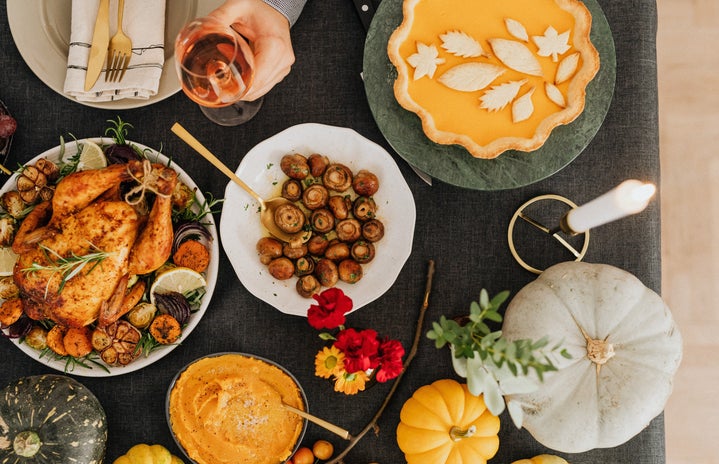Thanksgiving is widely celebrated as a national day of gratitude in the United States, though we fail to recognize the history attached. The default prevailing story is Native Americans and Pilgrims gathered around the table as autumn leaves drifted gracefully from trees, bearing thanks and delight, preparing to feast on the steaming array of food in unison, devoid of conflict. This illusion is far from the reality of what happened 400 years ago at the Plymouth Thanksgiving.
When European settlers arrived in Plymouth, Massachusetts, they conquered the region, claiming it as their own, though Native Americans had occupied the land for centuries before their arrival. Their arrival brought foreign diseases to the land, killing masses of Native Americans, including the Winapoag Tribe of Plymouth. The atrocities did not end there for Natives, as they were often sold into slavery by settlers after being kidnapped, never to return to their tribes. The inaugural ceremony of Thanksgiving did not originally include Native Americans, as they were not invited to the Pilgrim’s three-day-long feast in 1621. Rather, Native Americans arrived after hearing gunfire and mistaking it as fighting, following a mutual-defense agreement between the two parties. The Native Americans opted to stay after discovering that the Pilgrims were celebrating through prayer and fasting.
Future Thanksgiving feasts did include fasting and praying, however, there were multiple cases where Thanksgiving was celebrated after massacring Native Americans. For example, in 1637, Massachusetts Governor, John Winthrop, “declared a day of thanksgiving after volunteers murdered 700 Pequot people” (Salaky). Thanksgiving was eventually announced as a national holiday by Abraham Lincoln. The celebration of the death of Native Americans looms around the holiday and is remembered by some tribes as a day to mourn their ancestor’s genocide. The United American Indians of New England asserted: “Thanksgiving day is a reminder of the genocide of millions of Native people, the theft of Native lands, and the relentless assault on Native culture. It is a day of remembrance and spiritual connection as well as a protest of the racism and oppression which Native Americans continue to experience” (The United American Indians of New England). Thanksgiving holds a stronger symbolic meaning for Native Americans: the beginning of a genocide, where their lands were raided, their people ravaged with disease, and killed by the millions.



